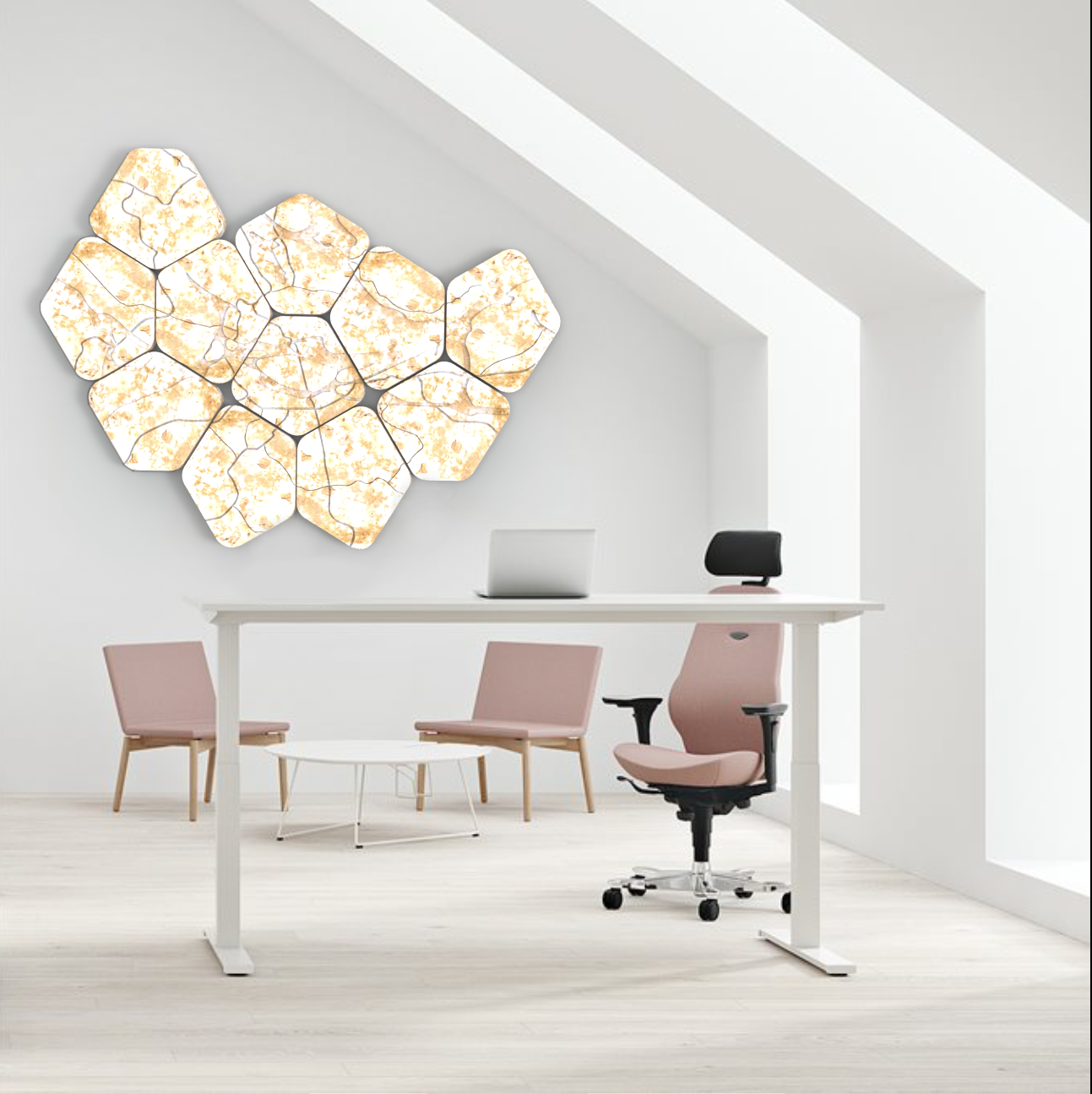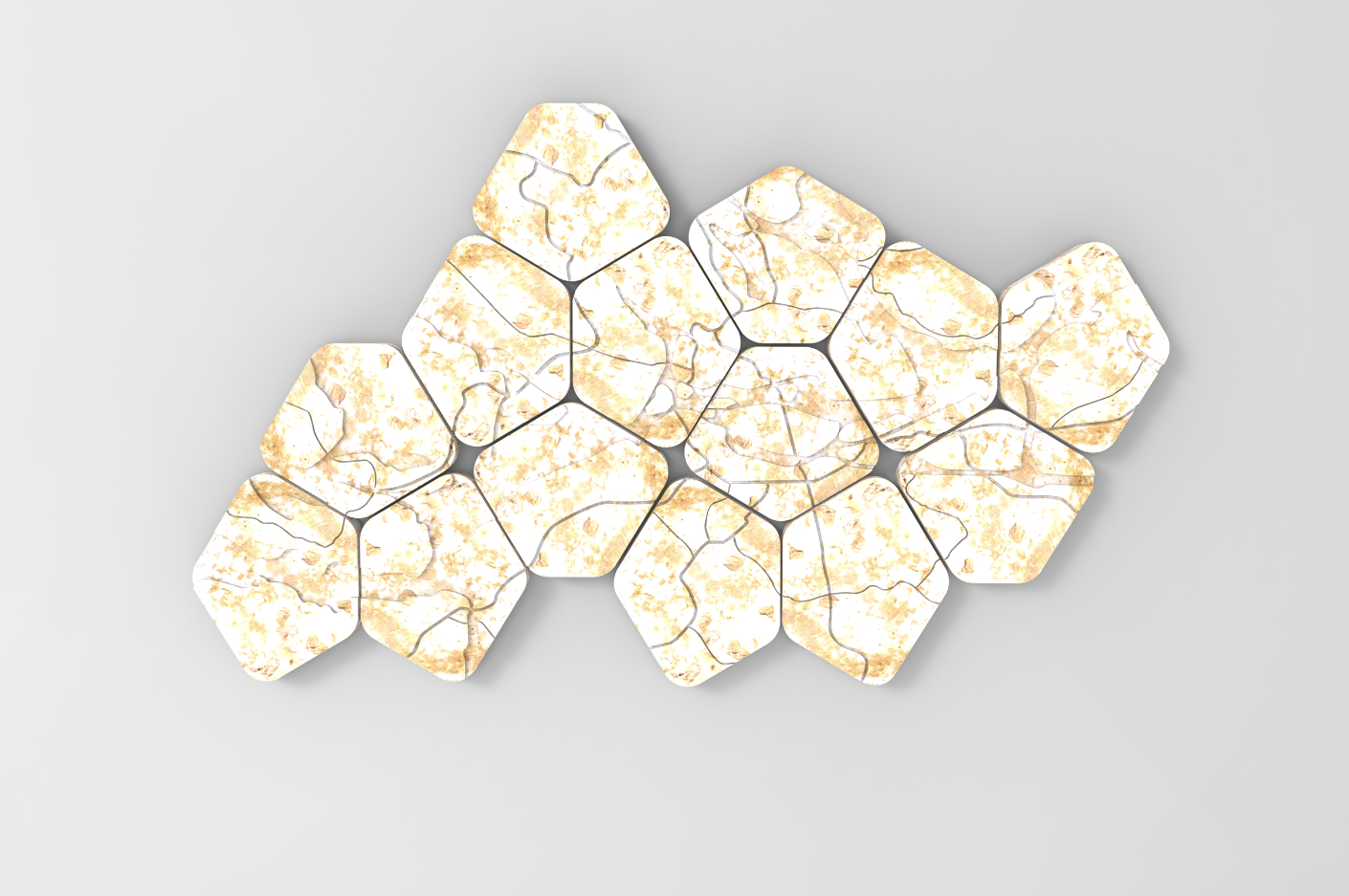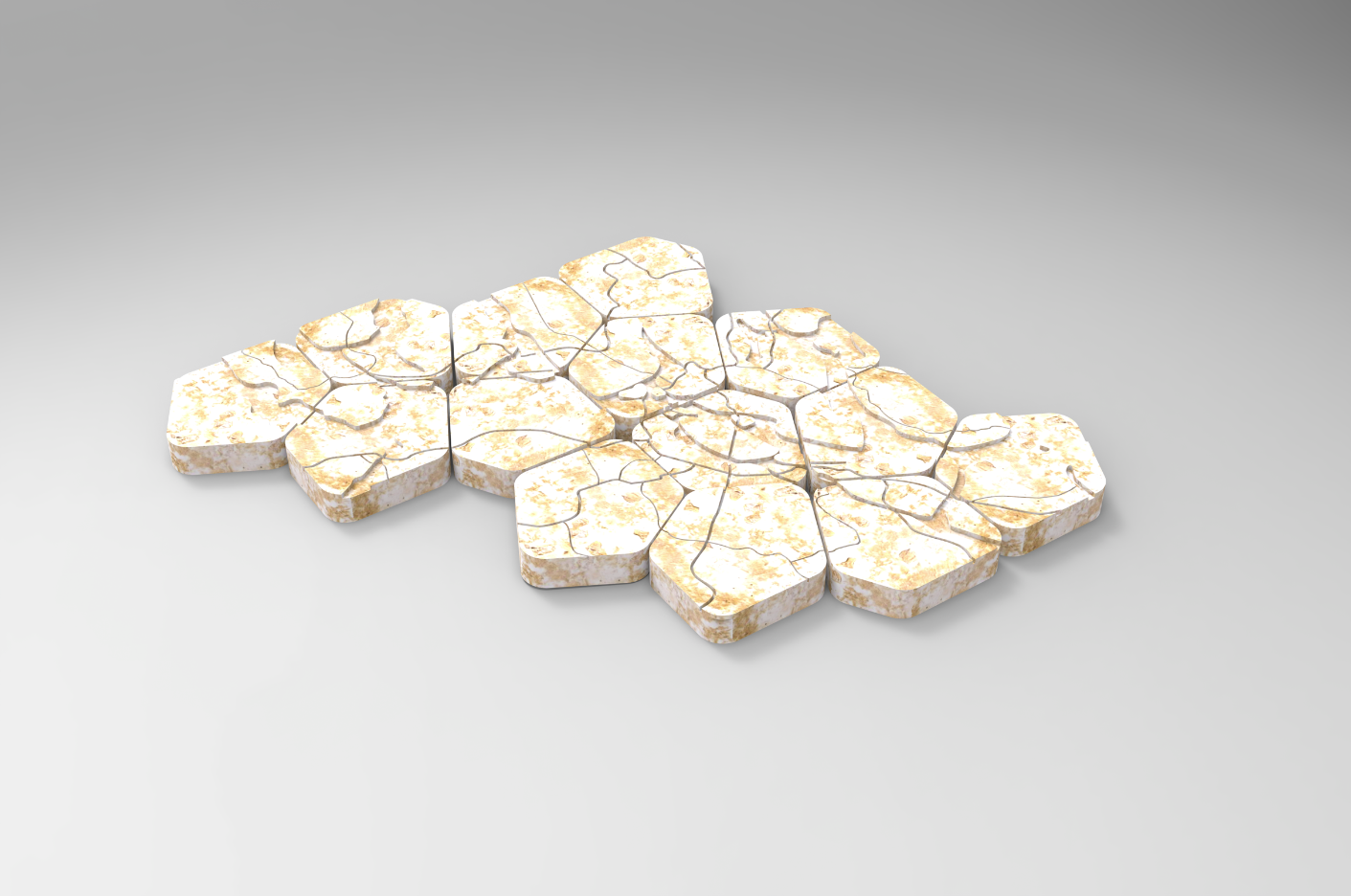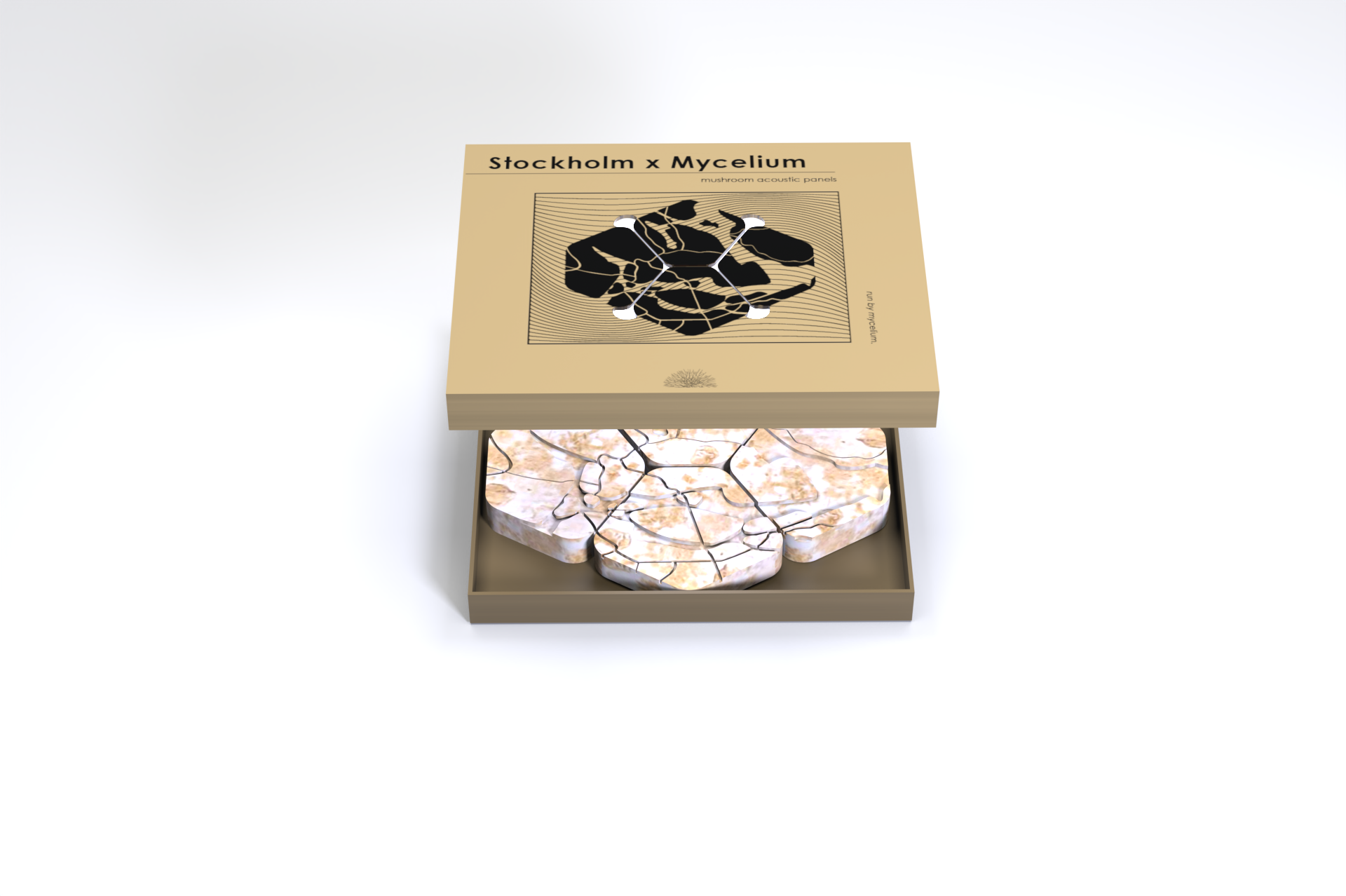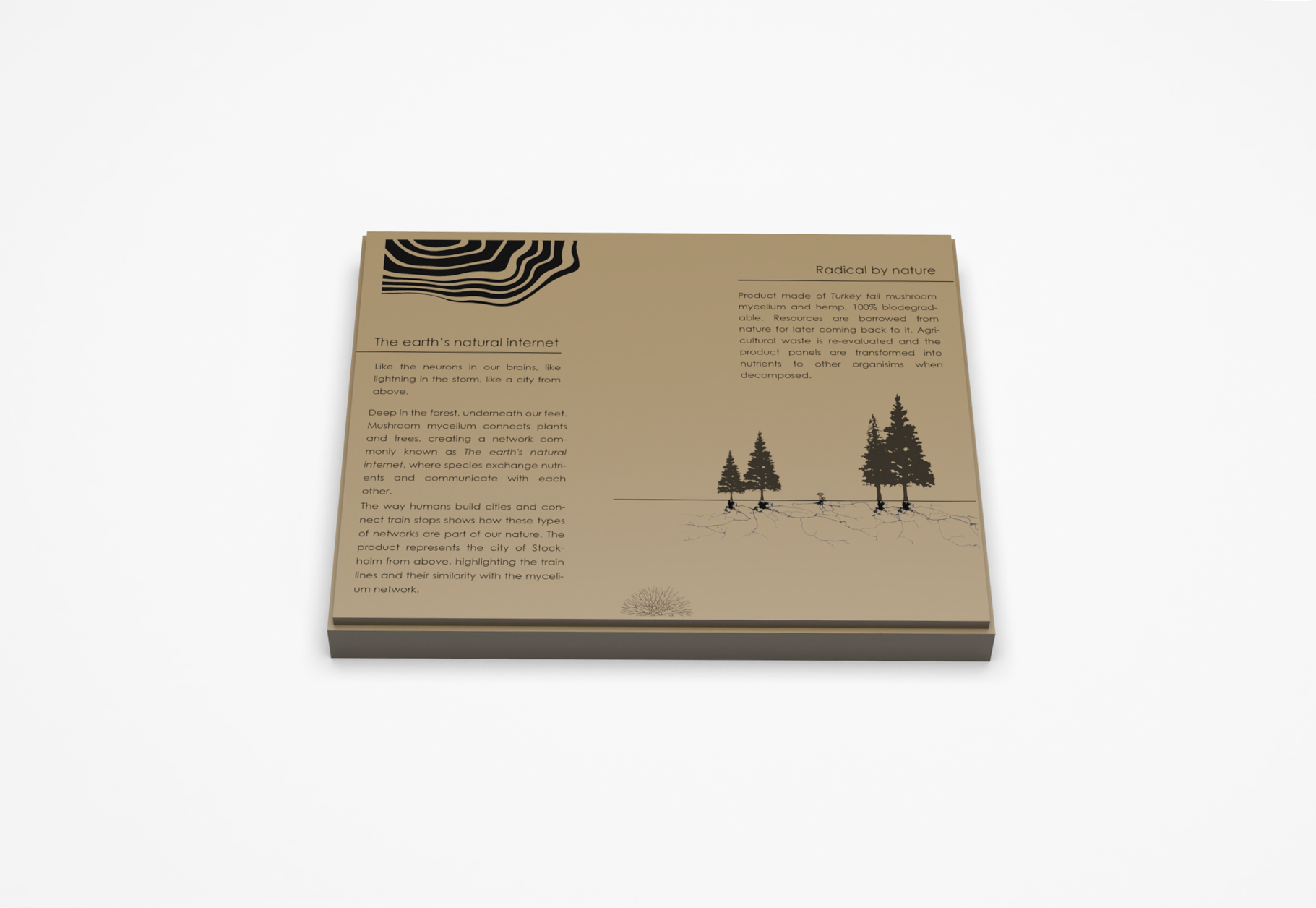The development of an acoustic insulation solution using mushroom mycelium as an alternative to synthetic foams.

Adrián Brito Guerrero de Escalante
LinkedIn Länk till annan webbplats, öppnas i nytt fönster.
Mushrooms have long been known for their indispensable role in recycling organic matter, for the production of antibiotics, beer, wine and bread. In the last couple of years, mushrooms have proved their potential as sustainable materials, known as mycelium composites.
Mycelium composites are made of mycelium (a root-like structure of mushrooms consisting of thread-like hyphae), and agricultural waste. Mycelium composites are innovative lightweight materials that present promising properties such as fire resistance, acoustic and thermal insulation and high resistance under compression efforts. This is a biodegradable alternative to plastics used in industrial applications such as packaging, thermal and acoustic insulation, leather-like textiles in the fashion industry, furniture design and structures in field of architecture.
Environmental pollution coming from plastics and industrial agriculture are some of the biggest problems that humanity is facing nowadays. Global plastic production continues to increase and reached 380 million tonnes in 2015. Seas and oceans are recipients of up to 12 million tonnes of waste. The agricultural sector accounts for 24% of global greenhouse gas emissions and almost 90% of global deforestation is the result of its expansion. With mycelium composites agricultural waste is valorised while creating a sustainable alternative to oil-based materials, that can come back to the soil after its life cycle, fulfilling the requirements of a circular economy, providing an optimization of the resources and of the energy consumption.
The project aims to; present the existing knowledge regarding mycelium composites, their properties and industrial applications related to product design; to develop an acoustic insulation application where the intrinsic characteristics of the material are valued, there is a purpose of generating emotion and awareness of sustainability.

